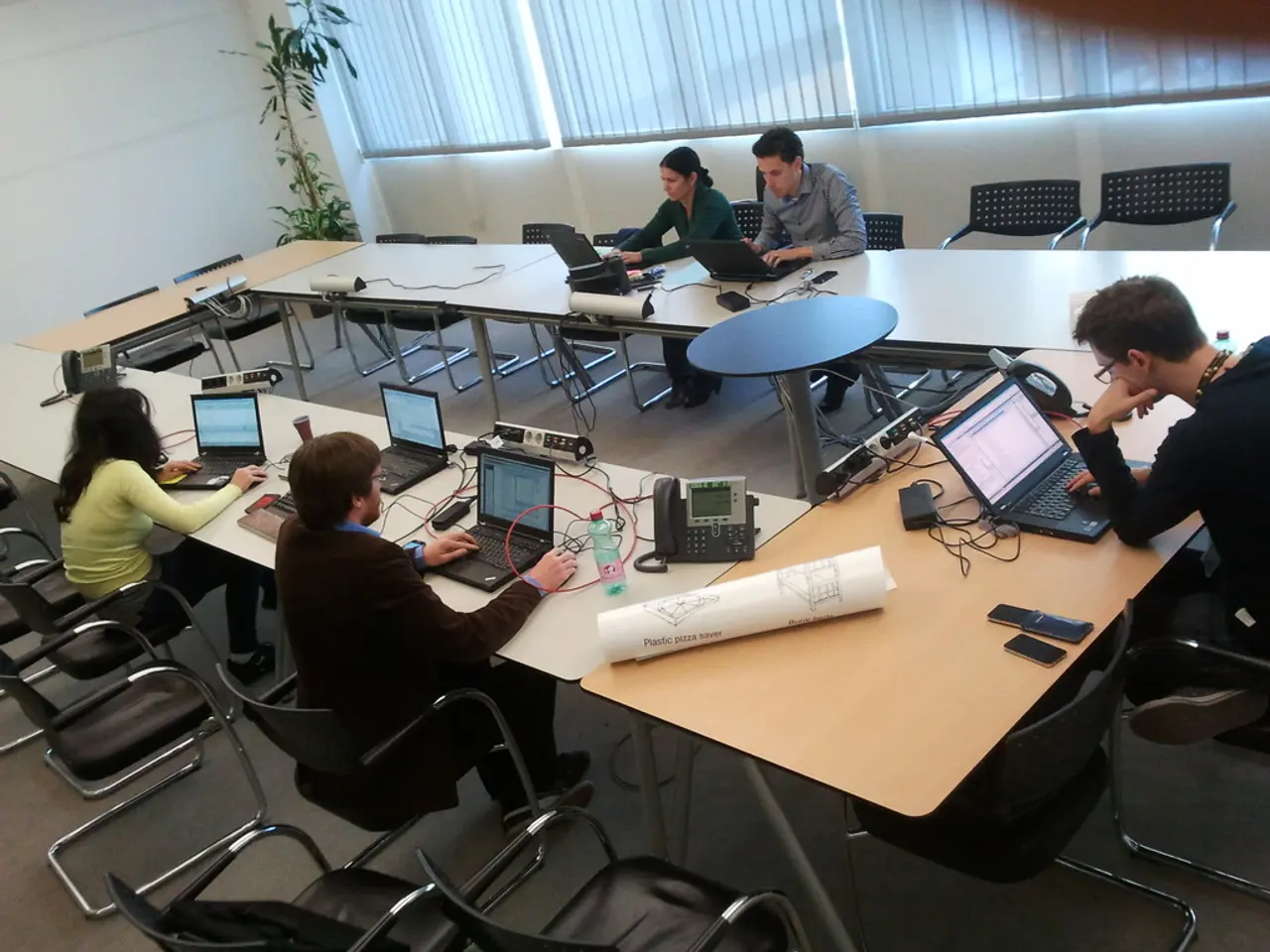AI Transforming Software Development: Insights into the Evolution of Coding with AI
In the ever-evolving landscape of software development, Artificial Intelligence (AI) is playing an increasingly transformative role. From the initial stages of requirement gathering to deployment, AI is now an integral part of the entire software development lifecycle.
AI, particularly generative AI, is embedded in every phase, acting as an intelligent assistant. It generates code snippets or entire blocks, suggests improvements, detects and fixes bugs, automates test creation, and manages project workflows using contextual intelligence. This has significantly improved development speed, reduced errors, and enabled more efficient asynchronous and collaborative engineering workflows.
Tools like GitHub Copilot and Amazon CodeWhisperer automate routine coding tasks, provide specialized performance and user experience recommendations, and help personalize user experiences dynamically.
Looking ahead, the future roles of AI in software development are set to become even more profound. AI will become more tightly integrated within development environments, offering real-time, proactive suggestions, intelligent error detection, and automatic refactoring assistance directly within developers’ primary workspaces.
The ability of AI to understand complex project requirements from natural language descriptions will improve, streamlining early development phases and fostering stronger alignment between stakeholders and developers. AI tools will adapt to individual developer habits, team coding styles, and evolving project needs, becoming personalized copilots that learn over time.
Beyond coding, AI will increasingly support software testing (automated test case generation, bug prediction), maintenance (identifying areas for updates, suggesting improvements), and managing technical debt via AI-driven refactoring tools. Concepts like "vibe coding" hint at future workflows where developers guide AI at a high abstraction level, fundamentally evolving the nature of programming and software engineering itself.
However, as AI becomes more ingrained in software development, it's crucial to ensure transparency, mitigate bias, and maintain ethical AI practices. Developers will need to become AI-literate, learning how to train, refine, and integrate AI into their workflows effectively.
Skills like critical thinking, adaptability, and public speaking confidence will become increasingly valuable for developers navigating collaborative and AI-driven environments. The future of software development will involve a collaborative partnership between humans and AI, with AI handling routine coding tasks while humans focus on strategic decision-making.
AI is also supercharging low-code and no-code platforms, making them smarter and more adaptable. It is making software testing faster, more efficient, and predictive by generating test cases and detecting anomalies. AI is helping developers build more secure applications, monitoring API interactions to prevent unauthorized access and detecting anomalies in application behavior, identifying potential security breaches.
In summary, AI has shifted from a supplementary tool to a core enabler of software engineering productivity and quality. Future developments will deepen this relationship, making AI an indispensable, personalized partner throughout the software development lifecycle and potentially redefining how code is created, tested, and maintained.
AI not only generates code snippets and automates test creation throughout the software development lifecycle, but it also provides recommendations for performance and user experience improvements. (technology, artificial-intelligence)
Looking toward the future, AI will become more integrated within development environments, offering real-time, proactive suggestions and intelligent error detection, fatally transforming the nature of programming and software engineering. (tech, artificial-intelligence)




